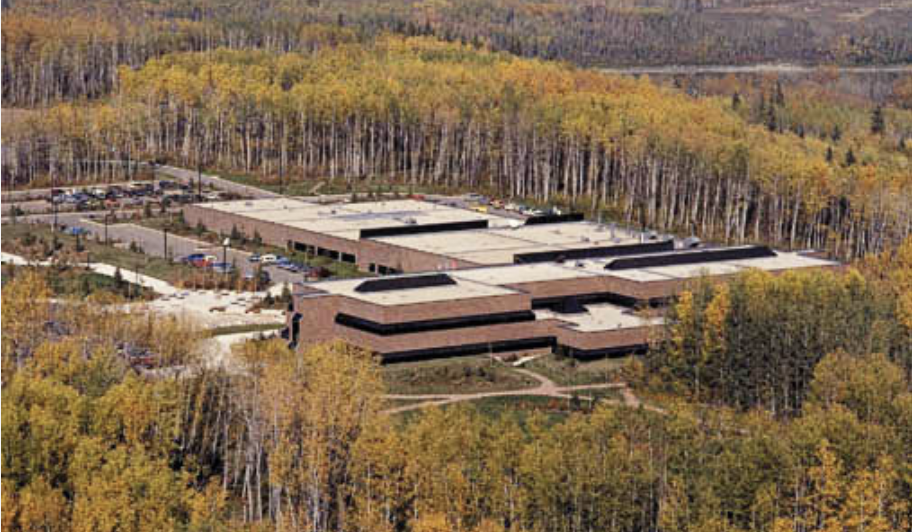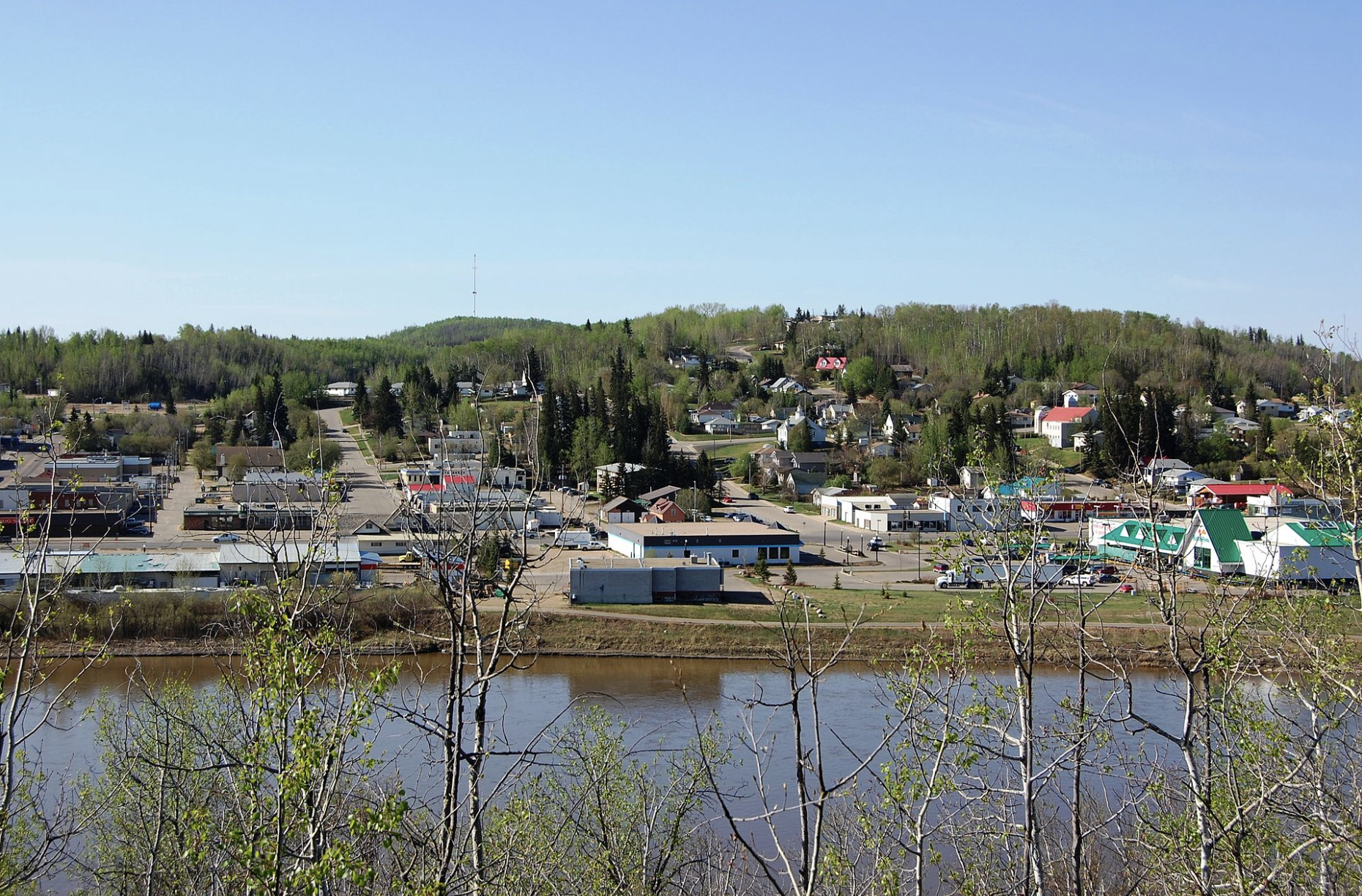
The Canadian Press (2022) Get back to work: Alberta government threatens funding cuts to Athabasca University CTV News Edmonton
The issue
The provincial government of Alberta has told Athabasca University (self-styled as Canada’s Open University) that it ‘must end its pursuit of the near-virtual strategy and must deliver a new strategic plan to Advanced Education for approval by Sept. 30. Failure to do so would allow the Ministry of Advanced Education to withhold the $3.43-million monthly instalment for Athabasca University’s base operating grant.’
This is a story that has been in the works for a very long time – 38 years in fact. Athabasca University’s headquarters were relocated in 1984 from Edmonton to the small town of Athabasca, which is just under a two-hour drive from Edmonton. The reason at the time: the MLA for the constituency of Athabasca was a member of the provincial government. The local pulp mill had closed and he needed to find some work for the town of approximately 3,000 residents.
The problem for the town
Athabasca University is by far the largest employer in the town, with a total of about 1,200 staff. However, many of the academic staff continue to be located in Edmonton or elsewhere, working remotely long before the Covid-19 pandemic, when, as with most other universities during the pandemic, nearly all staff were forced to work remotely.
Athabasca University’s President Peter Scott (formerly of the UK Open University) has wanted more freedom for its staff to continue to work remotely following the pandemic but this has received tremendous kick-back from the town of Athabasca. Without a substantial physical presence of the university’s staff in the town, the town really has little economic future. Also, what’s the point of calling it Athabasca University if it’s just a mailbox address?

The problem for the university
The problem from the university’s point of view is the difficulty of attracting world class staff if they are forced to live in a very small, remote town with few amenities. For a start, where would all 1,200 staff live in a town of 3,000 (currently there are 58 vacancies for rent or purchase in the whole area). For many years after the move from Edmonton to Athabasca, there was a regular daily bus service for employees to and from Athabasca. One senior academic has spent most of his time at Athabasca living on a houseboat in False Creek in Vancouver. For most staff, there is no valid reason for them to work on campus. They can do their work just as well online, including meetings. In particular, given the current labour shortage in Canada, many employers are realising that to attract and even more importantly to retain well qualified staff, they need to be more flexible about working arrangements, particularly if flexible work arrangements lead to greater productivity. The Alberta government (not for the first time) seems to be going backwards rather than forwards in terms of the general trend.
The Alberta government’s decision raises the question: what is the main purpose of a university? Is it mainly to provide jobs for local people, or is it to serve students (in Athabasca’s case, from across Canada). The government here is clearly saying: it must do both. Since the government is the main financial contributor to Athabasca University, it still has considerable clout.
Is there a good solution?
I must confess to mixed feelings about this issue. Working remotely is yet another privilege for academics, who generally get a good salary, pensions and working conditions. Many people around the world would jump at the chance of living and working in a small Canadian community with a regular salary and good working conditions. Universities can and should be economic drivers for their communities. On the other hand, they need to compete internationally for good staff, or their reputation will slowly sink and they will die.
What’s needed here (and this is in short supply in Alberta politics these days) is a little common sense and compromise. Require at least the President, Provost and other top executives and their immediate support staff to live in Athabasca. Require government officials to hold meetings with the university in Athabasca, rather than in Edmonton, so that their expenses for meals and accommodation go into the businesses in Athabasca. Require most staff to come in at least once a month for meetings (it will be good for building trust), and all campus maintenance staff to live locally. Set up a fund to support the development of local spin-off companies from the university’s research, and direct the research to support local issues, such as mitigating climate change. This may still not be sufficient to enable the town of Athabasca to survive, but a university cannot and should not do all the heavy lifting of economically supporting a town on its own.
A personal perspective
When my wife and I were desperate to find a way to emigrate to Canada in the 1980’s I went for an interview for a senior academic position at Athabasca University. After spending most of a day with the President and Chair of the Board of governors, I turned the job down.
My wife was furious – she was more than willing to move to a small town in Canada if that was the price of emigration. However, that wasn’t the reason I turned down the job. It was quite clear that I could not work with the then President and was appalled by the politics and arrogance of the Chair of the Board (who of course was a political appointment). It was a good decision on my part. Glen Farrell later enabled me to move to the Open Learning Agency in Vancouver, which was less like the wild west than Alberta.
Things change of course. I was later proud to be offered an honorary degree by Athabasca University, and it is still one of the very few universities in Canada where you can do a whole bachelor’s degree at a distance in many subjects. Alberta should be proud of its unique university, not making life difficult for it, as it has so often done. But the university may need to compromise too, otherwise it could be looking for a new President soon.
The poetry of Athabasca University
In the meantime, here is a lovely little ditty from 1984 from Ross Paul, Vice-President Academic at Athabasca University (1980-91), which seems particularly appropriate today:
AthaAthabasca
They looked into St. Albert and north to Chipewyan.
They even tried Regina but that’s in Saskatchewan.
They looked at Drayton Valley and even Stony Plain,
But every time they thought of it, they came back to the name.
CHORUS: Oh, AthaAthabasca is the place that we should go
AthaAthabasca, where winds of change do blow.
In the town of Athabasca, they really know the score.
AthaAthabasca, we’ll go in ’84.
They thought of Fort McMurray and other places east —
Of Wabasca and Carcajou and even Lac La Biche.
Manyberries, Grouard, every town that staked its claim,
But every time they thought of it, the answer was the same.
CHORUS
They never thought of Edmonton or even Lake Louise,
Nor any other attraction that might the inmates please.
They scoffed at Banff and Jasper, those places were too known.
They had to find a little town far away from home.
CHORUS
“You’re in distance education but you’ll never make it pay
Unless we pick you up and move you very far away.
And just to be certain there’s no credibility gap,
We’ll move you to the town that’s in the middle of the map”.
CHORUS









 Dr. Tony Bates is the author of eleven books in the field of online learning and distance education. He has provided consulting services specializing in training in the planning and management of online learning and distance education, working with over 40 organizations in 25 countries. Tony is a Research Associate with Contact North | Contact Nord, Ontario’s Distance Education & Training Network.
Dr. Tony Bates is the author of eleven books in the field of online learning and distance education. He has provided consulting services specializing in training in the planning and management of online learning and distance education, working with over 40 organizations in 25 countries. Tony is a Research Associate with Contact North | Contact Nord, Ontario’s Distance Education & Training Network.


Thank you for your as ever thoughtful comments on this issue Tony. One point of clarification is that Athabasca is reliant on the Government of Alberta for around 26% of our funding – so not the majority. The rest of it comes primarily from students in the form of tuition. Which is what makes it very hard to see an investment management agreement that devalues metrics and funding based on supporting their achievement, in favour of an impossible metric on number of staff living in the town. If we are really beholden to those that fund us then it’s actually our students whose needs should count higher (and as a University shouldn’t that be the case always and anyway? But maybe I have funny ideas about these things).
Thanks, Anne-Marie, for the correction about funding. You are absolutely right that students should be the first consideration in this brouhaha, and not just because they are the main revenue stream.
I have never read a single one of your posts that I have not enjoyed and learned from, Tony. This is yet another. Fascinating to read of your reasons for rejecting a job at AU. I’ve just been reading Tim Byrne’s book on AU, from 1989, that is mostly a catalogue of how rampantly awful politicians have used the university for their political ends since before it even began, with no care for its staff, its students, or the education of Albertans (let alone anyone else). I love the poem. A few points of concern, though:
1) I don’t see remote working as a privilege; I see it as a duty. If we can’t make it work for ourselves, we are not going to make it work for our students. Those who have started to work from home in recent years have barely begun to understand how it works, and we are still using tools and processes that (very poorly) mimic in-person practices, but this is beginning to change, and it is beginning to be reflected in teaching practices. A long way to go yet, hampered by limited resources and massive investment of time and energy in changing almost everything about how the university works
2) Though being a political football with ever-diminishing government support over decades is in part to blame, a (maybe) bigger part of the reason AU has yet to achieve its enormous promise has always been precisely the fact that the executive team and a large chunk of the workforce (a very, very unrepresentative chunk, including hardly any actual professors or tutors) have lived in a close-knit, insular Northern community away from everyone else. Those in the town have, till recently, had privileged access to the seat of power, and have felt empowered themselves because they have always been a part of every decision. They short-circuit communication, while the remaining 75% of us got nothing but intentional, filtered, instrumental reports on what they have done, if we were lucky. Much that affected us happened without any word from anyone. It was not a deliberate ploy: it is just the inevitable consequence of having in-person groups in an online community. I’ve seen it in my own teaching: if even one small group gets together in person then it greatly diminishes the broader learning community: posts become instrumental, stilted, and extrinsically motivated. If enough start doing it, the learning community dies. At least we have got rid of the St Albert, Edmonton and Calgary satellites, that were smaller cliques, but cliques nonetheless. The fact that the executive team got the vast bulk of their information and opinion from an unrepresentative portion of the staff, whose interests tend (naturally) to be be administrative or technical, caused much harm to the university’s teaching and research potential. For instance, under the MacKinnon administration, though much was (very badly) invested in changing administrative systems, the one thing that matters most (the teaching platform) was left to decay, running a version of Moodle that was so old it was not even receiving security updates. Research-led systems like my own pet project, the Landing, and many others (notably the eportfolio server, as well as many systems developed in partnership with other organizations) were deliberately and single-mindedly abandoned: we had the money to support them, but the administration would not allow us to spend it on their staff, who administered the systems and without whom they could not be further developed.
Since the executive team mostly moved out of Athabasca, and since most of us moved to working from home (happily so, for the most part, even in Athabasca), those who used to enjoy a hotline to the gods feel that the executive team has not been communicating properly with them whereas, in fact – from the perspective of the majority of us working remotely – they have been far more accessible, far more interested in engaging with everyone, far more communicative about what is going on than ever before in the whole history of the university. The loss of privilege has, though, made many in the town of Athabasca (and some who enjoyed working in satellite buildings elsewhere) hostile to our leadership and resentful of them. Unfortunately, those in Athabasca make up a significant part of the joint academic/professional union, especially its leadership, so this has caused no end of trouble, including a highly belligerent attitude towards negotiation that (to a significant extent) directly led to a narrowly averted strike earlier this year. Moving the exec team to Athabasca would be an unmitigated disaster, in the short and long term. In the short term, because most of the brilliant and visionary team we have now would leave. In the long term, because whatever government lackeys were appointed in their place would replicate exactly the same problems that got us into this mess in the first place. Moving 65% of our staff to Athabasca would set us back 40 years, cause mass resignations across the board, and most likely result in rapid ruin for both the university and the town. The government’s mandate is unworkable in practice and wrong in principle. Maybe something will be left of the university at the end of it, but it will have a fraction of its size, strength, and impact, whatever the board of governor’s and exec team decide to do about it. This would be bad for the town of Athabasca, bad for Alberta, bad for Canada, and bad for the World, whatever we do.